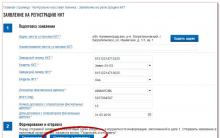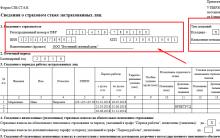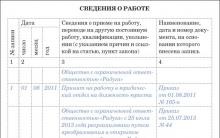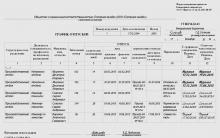A general power of attorney for the right to sign documents implies that the one who issued the power of attorney authorizes a certain person to carry out all transactions not prohibited by law on his behalf. In other words, the person indicated in the general power of attorney acts on behalf of the one who drew up this document. Naturally, this must be a person who is highly trusted and who is guaranteed not to act against the interests of his principal.
A power of attorney for the right to sign is usually made if, for example, the manager cannot personally attend the meeting on the day the document is signed. For example, this could be a contract for the sale and purchase of an apartment, and he is the buyer. But on the day when it was necessary to submit documents to the Registration Chamber, he had to urgently leave for another city, and there was no way to return on time. Then he issues a general power of attorney to the person he can trust.
On the day the transaction is concluded, the authorized person will confirm the agreement with his signature, acting in the interests of his principal.
Any person can act as a trustee:
- Spouse.
- Close relative.
- Good friend.
- A colleague.
It is important to understand that having permission to sign on behalf of the principal on any document can lead to the temptation to use your right to harm.
For example, a person with such a power of attorney can easily take out a loan for him and spend the money received on his own needs. That is why the principal must be a particularly trusted person.
Types of powers of attorney
 A general power of attorney as such is not always issued, especially if you need to perform only one action. It’s another matter if a power of attorney is issued, for example, to realtors, so that they, on behalf of the principal, draw up all the documents and carry out the transaction in its entirety, without bothering him on every issue.
A general power of attorney as such is not always issued, especially if you need to perform only one action. It’s another matter if a power of attorney is issued, for example, to realtors, so that they, on behalf of the principal, draw up all the documents and carry out the transaction in its entirety, without bothering him on every issue.
Thus, they distinguish:
- One-time entrustedness. They are issued to perform only one, clearly defined action. For example, register a car with the traffic police.
- Special powers of attorney authorize the bearer of documents to perform similar actions or a chain of actions within the framework of one order. For example, registration of a transaction for the purchase and sale of an apartment.
- General trustsfeatures give its owner the right to represent the principal in all areas.
If a power of attorney is needed only to perform one action, it must be indicated in the text of the document. Otherwise, the document can be used once - but not for its intended purpose.
Registration of a power of attorney for the right to sign documents
The power of attorney must be drawn up in writing. It is necessary to have it certified by a notary only in cases where the action that the bearer of the document must perform must also be certified by a notary. Price 500 rubles. For example, these include concluding a rent or mortgage agreement.
The power of attorney can indicate the specific scope of rights vested in the trustee. He cannot do anything beyond this. Points can be combined, some can be excluded, some can be added.
Important: if the power of attorney is issued by a legal entity, then it is not required to be certified by a notary, which would not have to be done by an authorized person.
What should be included in the power of attorney?
 A standard sample of a general power of attorney is always available to the notary. But it may not meet your needs. So some points can be excluded, something can be added - this is not forbidden. The notary will explain what changes are permissible under the law.
A standard sample of a general power of attorney is always available to the notary. But it may not meet your needs. So some points can be excluded, something can be added - this is not forbidden. The notary will explain what changes are permissible under the law.
The text of the power of attorney itself must contain the following mandatory elements:
- Date and place of issue of the power of attorney.
- Details of the principal and his representative, including information from the passport and residential address.
- Powers of the representative. This item must be filled out in free form. Thus, there may be a brief description of the powers: permission for all transactions not prohibited by law, or specific actions are listed or, on the contrary, some actions will be excluded.
- Indication of the impossibility of transferring authority. If you do not specify this point, then signature rights may be transferred to third parties, and this always ends in failure.
- Conditions for early termination of the power of attorney. For example, at the mutual desire of the parties or due to violations by one party of the laws of the Russian Federation.
- Validity period of the document. Usually this is a year. The maximum period is 3 years.
The signatures of both parties must be certified by a notary. If any of the above details do not correspond to the norm, then the power of attorney may be considered invalid.











How to issue a power of attorney to represent the interests of an LLC to an individual?
How to register an individual entrepreneur: step-by-step instructions
Power of attorney form for receiving goods or material assets
Deadline for registering individual entrepreneurs with the tax office
Business plan for a law firm: example with calculations, legal support for business